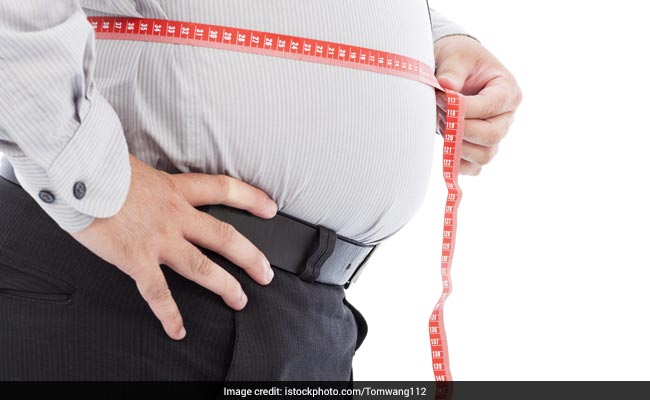Key insights into bloating vs fat and how to manage it.
Key insights into bloating vs fat and how to manage it.
Blog Article
Why Recognizing the Difference In Between Bloating and Fat Is Crucial for Your Digestion Health
Comprehending the distinction in between bloating and body fat is necessary for enhancing digestive wellness. Bloating can be a sign of underlying stomach issues or nutritional level of sensitivities, while body fat represents an extra stable aspect of general health and wellness and needs various factors to consider. Misinterpreting these two problems may cause ineffective approaches that overlook the origin causes of pain. By clearing up these distinctions, individuals can better tailor their methods to nutritional routines and way of living modifications. This exploration elevates essential inquiries regarding how to successfully manage these varying elements of wellness.
Recognizing Bloating
Lots of individuals experience bloating eventually in their lives, yet the underlying causes and implications for digestive health can be complicated. Bloating is identified by a sensation of fullness or tightness in the abdominal area, usually come with by noticeable distension. This problem can occur from various variables, consisting of nutritional options, food poisonings, and lifestyle routines.
Usual nutritional offenders consist of high-fiber foods, carbonated drinks, and specific sugars that are badly soaked up in the intestinal tract. As an example, lactose intolerance can bring about bloating after taking in dairy products, while excessive intake of beans might trigger gas manufacturing. Additionally, overeating or eating as well quickly can aggravate the feeling of bloating, as the body battles to refine huge amounts of food successfully.
Intestinal conditions, such as irritable digestive tract disorder (IBS) or celiac condition, can even more complicate the experience of bloating, as they frequently involve increased sensitivity and impaired food digestion. Understanding the details triggers and systems behind bloating is critical for effective monitoring and therapy, enabling people to make enlightened dietary and lifestyle adjustments to promote ideal digestive system wellness.
Identifying Body Fat

Acknowledging the distinction in between bloating and body fat is vital for recognizing one's overall gastrointestinal health and wellness and physical condition. Body fat describes the adipose tissue that is stored in numerous areas of the body, serving as an energy book and playing important duties in hormonal agent law and thermal insulation. It is essential to accurately identify body fat to evaluate wellness risks associated with too much adiposity, such as cardiovascular illness and diabetes.
To determine body fat, people can make use of several methods, consisting of body mass index (BMI), skinfold dimensions, and bioelectrical impedance evaluation. BMI is a widely used tool that associates weight and elevation; nonetheless, it may not accurately mirror body structure. Skinfold dimensions involve pinching different locations of the body to evaluate fat density, while bioelectrical insusceptibility makes use of electric currents to estimate body fat portion.
Visual examination can likewise contribute in identifying body fat circulation, which can supply understanding right into health implications. Natural fat bordering the body organs poses higher wellness threats contrasted to subcutaneous fat located just under the skin. Recognizing these subtleties is crucial for taking on proper health methods and enhancing general health.

Root Causes Of Bloating
Bloating can occur from a wide variety of aspects that impact the digestive system, resulting in discomfort and a distended abdominal area. One common reason is the consumption of air, which can take place while eating or consuming alcohol too swiftly, eating periodontal, or cigarette smoking (fat vs bloating). This air accumulation can create a sensation of fullness and stress
Nutritional choices additionally play a substantial duty in bloating. Specific foods, specifically those high in fiber, such as beans, lentils, and cruciferous veggies, might bring about gas production throughout digestion. Additionally, carbonated drinks can present excess gas right into the gastrointestinal system.
Food intolerances and level of sensitivities, such as lactose intolerance or gluten sensitivity, are other common sources of bloating. When people take in foods they can not effectively digest, it can cause gas and pain.
Moreover, hormonal fluctuations, especially in women throughout the menstrual cycle, can add to bloating due to water retention and stomach modifications. Underlying clinical problems, such as short-tempered digestive tract disorder (IBS) or intestinal blockage, may likewise show up as bloating, stressing the significance of appropriate diagnosis and monitoring. Comprehending these reasons is vital for effective symptom monitoring.
Effect On Digestive Health And Wellness
Consistent bloating can significantly affect gastrointestinal health and wellness, influencing total well-being and lifestyle. Bloating commonly arises from the accumulation of gas or liquid in the gastrointestinal system, bring about pain and a distended abdomen. This condition can interfere with normal digestive system procedures, harming vitamins and mineral absorption and resulting in shortages over time.
Additionally, persistent bloating may be a sign of underlying stomach disorders such as short-tempered have a peek at this site bowel disorder (IBS), gastric illness, or food intolerances (difference between bloating and fat). When these problems are left unaddressed, they can visit here aggravate signs and symptoms and cause additional difficulties, consisting of constipation or diarrhea
The psychological repercussions of bloating should likewise be acknowledged. Regular pain can contribute to anxiousness and tension concerning consuming and social communications, even more complicating one's partnership with food and digestion.
Strategies for Monitoring
Efficient monitoring of bloating needs a diverse approach that attends to nutritional practices, way of living adjustments, and possible clinical treatments. People need to assess their diet regimens, determining and removing usual triggers such as dairy products, gluten, and high-FODMAP foods, which are understood to add to gas and discomfort. Integrating fiber slowly can improve digestion wellness, yet extreme fiber consumption ought to be stayed clear of, as it may exacerbate bloating.

Tension administration methods, consisting of mindfulness and deep-breathing exercises, can additionally play a substantial role. fat and bloating. Stress is recognized to influence digestive system function negatively, causing raised bloating
If way of living and nutritional alterations do not generate relief, getting in touch with a medical care professional is advisable. They might recommend diagnostic tests to dismiss hidden conditions such as Cranky Bowel Syndrome (IBS) or food intolerances. In many cases, medicines or supplements might be prescribed to ease signs successfully, making certain a detailed strategy to handling bloating.
Final Thought
In final thought, differentiating between bloating and body fat is Extra resources important for promoting digestive system health. Bloating, frequently resulting from nutritional options or stomach problems, requires targeted interventions to minimize pain.
Report this page